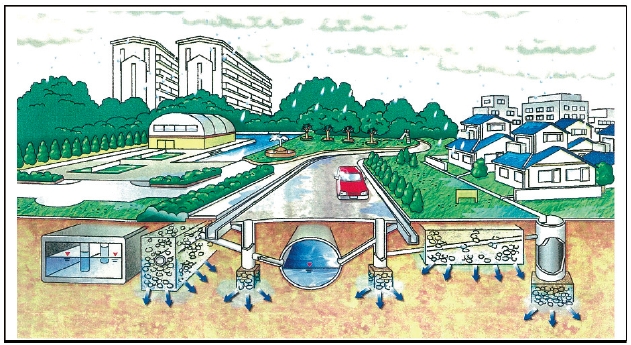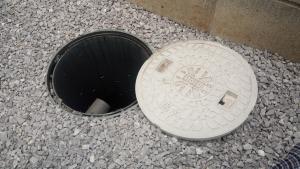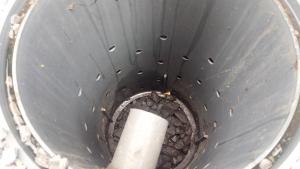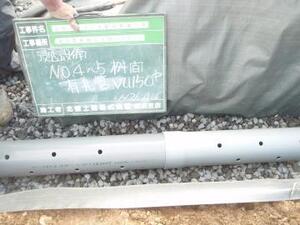Rainwater runoff control measures
Update date: December 27, 2023
In recent years, localized heavy rains have been increasing across the country, increasing the risk of flooding due to rainwater. In order to protect the lives and property of citizens and maintain urban functions, the city is promoting rainwater runoff control measures in conjunction with the development of public stormwater sewers.
In order to control rainwater runoff, we work with related departments to preserve areas that can seep through, such as green spaces and parks. Rainwater drainage facilities (storm drains, etc.) are large-scale and require a great deal of cost and time to maintain. Additionally, as we need to respond to the recent localized heavy rains, we are promoting the installation of rainwater infiltration facilities and rainwater storage facilities in addition to rainwater drainage facilities.

Image of rainwater storage and infiltration facility
Rainwater infiltration facility
This facility allows rainwater to efficiently permeate into the ground. Examples include rainwater infiltration chambers and infiltration trenches.
By allowing rainwater to permeate underground, it becomes groundwater and can be effectively utilized as a healthy water circulation resource.
Rainwater infiltrates
Rain that falls on the roof is channeled through rain gutters into rainwater infiltration basins.
One rainwater infiltration basin with a diameter of 25 centimeters has the ability to infiltrate the ground into the ground, equivalent to the amount of rainwater equivalent to one full bath per hour.
Rainwater infiltrates allow rainwater to infiltrate through the holes on the bottom and sides, as shown in the photo below.

Rainwater will seep in (with the lid removed)

Rainwater permeates (inside)
penetration trench
In addition to rainwater infiltration basins, you can obtain even more infiltration effects by installing infiltration trenches.
Although it cannot be seen visually on a daily basis, it can be installed on the premises as shown in the photo below. Rainwater infiltrates through perforated pipes and gravel at the bottom.

Infiltration trench under construction
Rainwater storage facility
This is a facility that temporarily stores rainwater and uses it as a water resource or slows down the runoff of rainwater. Examples include storage tanks and regulating ponds.
storage tank
A facility that stores rainwater that falls on the roof of a building.
By installing a storage tank, you can temporarily store rainwater and use it for watering your vegetable garden, trees, or as valuable daily water in the event of a disaster.
Retention pond
This is a facility that temporarily stores rainwater from the entire basin, slowing down the runoff of rainwater to the downstream area, cutting peak runoff volume, and reducing flood damage.
Retention pond
Inquiries regarding this page
Inagi City Urban Environment Development Department Sewerage Division
2111 Higashi-Naganuma, Inagi-shi, Tokyo
Phone: 042-378-2111 Fax: 042-378-9719







